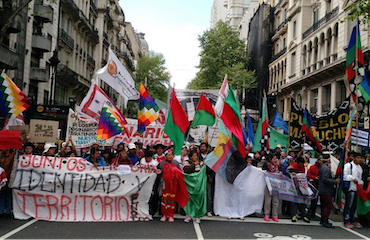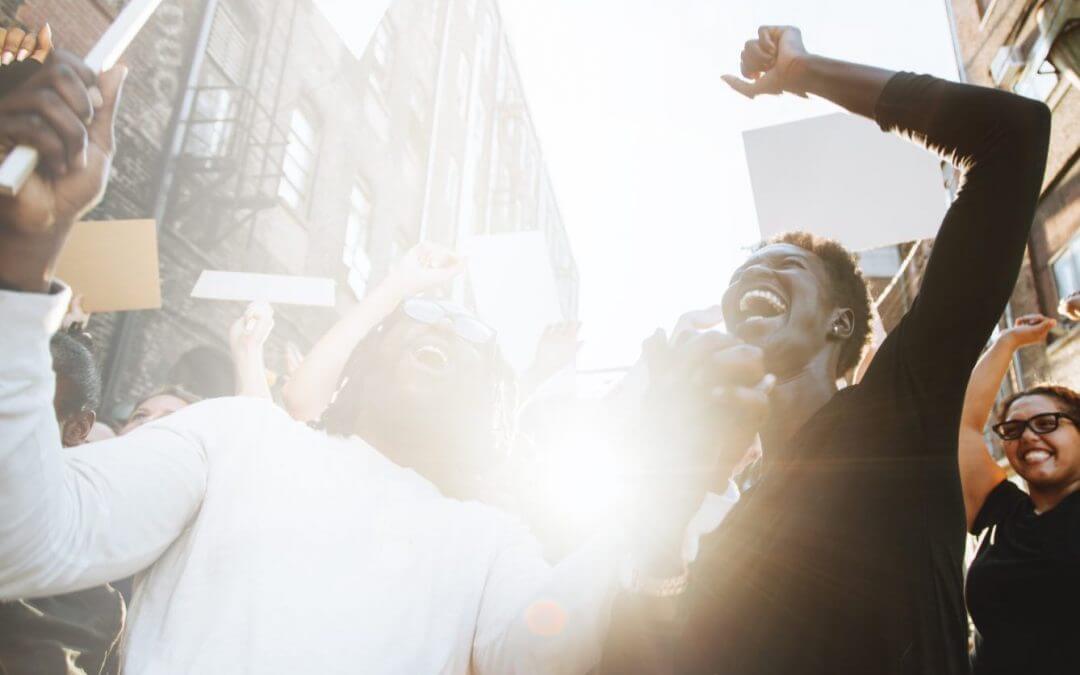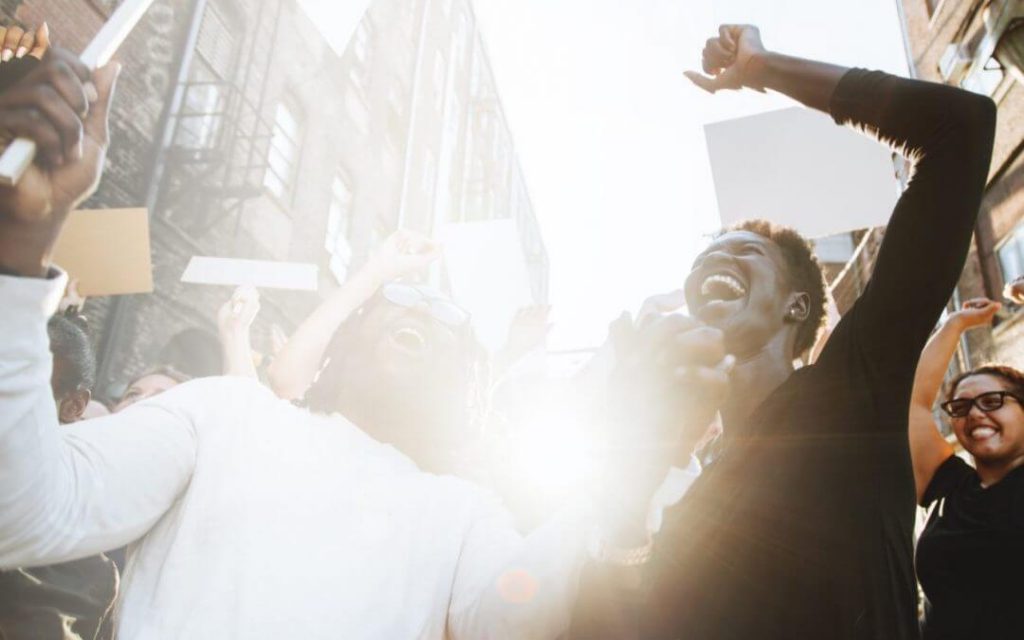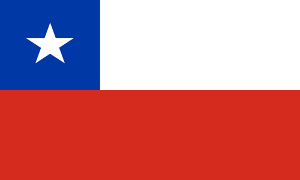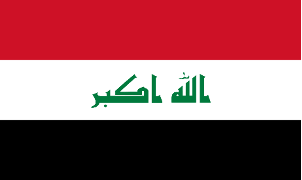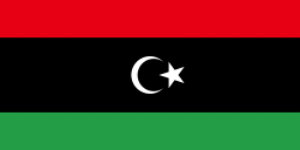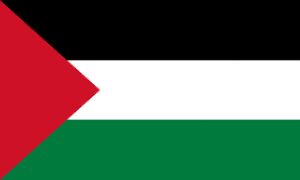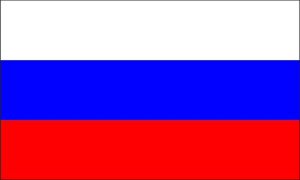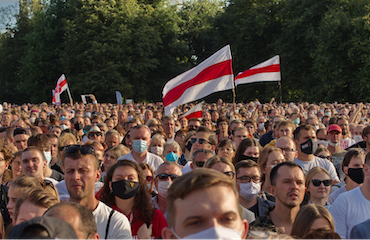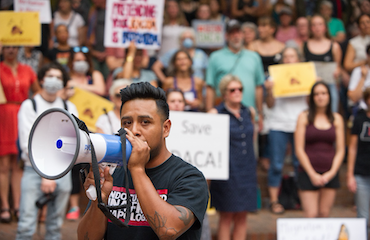Dear friends,
CANVAS is pleased to bring you another weekly report! This week covers ongoing protests in Libya, the United States, Chile and Bolivia, China’s reaction to US sanctions, recent reports of denying Rohingya candidates from running for office in Myanmar, as well as many others!
Coronavirus [UPDATE]
In the United States, two Food and Drug Administration employees were fired following “grossly misinterpreted” blood plasma data was publicly praised by President Trump. The Center for Disease Control was questioned by experts as they modified coronavirus testing guidelines to exclude those who do not have symptoms of COVID-19. Additionally, the first four coronavirus reinfection cases were confirmed this week, with two mild cases in Europe, one mild case in Hong Kong, and one severe case in the United States. Finally, India became the world’s fastest-growing outbreak in the world with nearly 500,000 cases reported this week.
The United States
The US saw Black Lives Matter protests surge around the country following the shooting of unarmed Black man Jacob Blake by a Wisconsin police officer. On Tuesday, 17-year old gunman Kyle Rittenhouse fatally shot two BLM protestors after crossing state lines to confront protestors. Last Friday, thousands of people attended the “Get Your Knee Off Our Necks” March on the 57th anniversary of Martin Luther King Junior’s “I Have a Dream” speech, organized by civil rights campaigner Rev. Al Sharpton. A Category 4 storm, Hurricane Laura, caused 6 deaths and devastated communities around and inland of the Gulf Coast.
China
The United States imposed sanctions upon 24 Chinese companies for allegedly assisting the Chinese military with constructing artificial islands in the South China Sea. These companies now must receive special permission if they wish to buy any technology from the USA. Such sanctions have previously been reserved only for companies that pose national security threats or are complicit in human rights abuses in Xinjiang. In tandem with these sanctions, the United States announced that individuals “responsible for, or complicit in, either the large-scale reclamation, construction, or militarization of disputed outposts in the South China Sea” would be barred from entering the country. A spokesperson for the Chinese Foreign Ministry decried the sanctions, saying they “violate[d] international law” and were driven by “tyrannical logic.”
Hong Kong
On August 26th, Hong Kong police arrested 16 pro-democracy activists on charges related to last July’s protests against China’s growing influence over the city. Among those arrested were two high-profile members of the Democratic party, Lam Cheuk-ting and Ted Hui, both of whom had their homes raided by security forces. Mr. Lam was arrested on “suspicion of participating in rioting” and “conspiring to damage property and obstruction of justice outside Tuen Mun police station” last July, whereas Mr. Hui was arrested on counts of “attempted obstruction of justice, access to a computer with criminal or dishonest intent, and criminal damage.”
Myanmar
Dozens of members of the Rohingya minority group have applied to be candidates in this November’s general election. Six have already been rejected due to a rule stating that both parents of the candidate must have been citizens when he/she was born. Under this policy, many Rohingya cannot qualify for office because Myanmar’s past military governments have consistently removed their identity documents.
Zimbabwe
Job Sikhala, the Vice Chairman of the Movement for Democratic Change-Alliance, was arrested last week on charges of “inciting public violence.” The high-ranking member of Zimbabwe’s largest opposition party had appeared on a police wanted list following nationwide anti-corruption protests held on July 31. Until now, he was in hiding along with approximately a dozen other activists involved in the demonstrations. Around the same time that Sikhala’s arrest was announced, fellow anti-government activist Jacob Ngarivhume was denied bail for a third time while fighting similar protest-related charges.
Chile
The United Nations sent a team to investigate the hunger strike of an Indigenous Mapuche leader and 20 others Mapuche people over his detention. The Mapuche have been fighting for ownership of their ancestral land against the wood pulp industry and the government. In 2014, leader Celestino Cordova was jailed for 18 years for his alleged participation in the murder by arson of two landowners in the region. Among other countries, Chile has been accused of using coronavirus lockdown restrictions to crack down on dissidents.
Iraq
The UN Envoy for Iraq reported that the country has seen a 10% increase in poverty during the coronavirus pandemic. 3 million Iraqis currently struggle to buy enough food. This change is attributed to a significant decrease in the cost of oil and petrol products, Iraq’s main exports, and massive job losses in the private sector during the COVID-19 era. Separately, the U.N. counter-terrorism chief announced that over 10,000 ISIL fighters remain active in “small cells” in Iraq and Syria, though coronavirus lockdowns have reduced the risk of terror attacks.
Libya
This week, Amnesty International called for the release of at least six protestors that were abducted by allies of the UN-recognized Government of National Accord (GNA) and called for an investigation into the matter. People have been protesting in Tripoli because of poor living conditions, electricity and water shortages and a general lack of government services. Additionally, a military commander of the Libyan National Army (LNA) declared a ceasefire called by the GNA to be a “marketing” stunt and that the LNA would remain ready to attack.
Syria
Last week, several towns in Idlib Province housing displaced families were bombed by fighter jets believed to be Russian. On Monday, an explosion on a main gas line caused a blackout across Syria. Syrian officials claim the explosion was the result of a terrorist attack. Three Syrian Constitutional Committee have tested positive for COVID-19, halting talks towards a political solution to end the nation’s war.
Lebanon
Thirty-seven UN human rights experts issued a statement calling for an independent investigation into the explosion that devastated Beirut earlier this month, largely due to a lack of faith in the Lebanese government’s ability to investigate the issue impartially. Lebanon’s President Michel Aoun previously shut down such calls for international probes into the blast on the basis that they would “dilute the truth.”
Palestine
Last week, Palestinian teenager Mohammed Damir Matar was shot and killed by the Israeli soldiers near the village of Deir Abu Meshal in the West Bank. Matar’s body is being held at Abu Kabir Forensic Medical Institute in Tel Aviv, which is notorious for illegally harvesting the organs of Palestinians. This week, Israel’s Supreme Court ruled that a group of Jewish settlement houses in the West Bank were built on private Palestinian land and must be removed. Air raids on Gaza have intensified since the release of incendiary balloons by Hamas into Israel as the territory heads into lockdown after the first four cases of coronavirus were confirmed by the health ministry.
Russia
Ever since Belarusian President Alexander Lukashenko declared he had secured a sixth term in office amid allegations of election rigging, there have been mass protests and calls for his resignation. Vladimir Putin, a longtime ally of Lukashenko, stated that Russia was prepared to provide military support to the Belarusian president if necessary; however, he stated, “there is no such need now, and I hope there will be no such need.” Leaders of European Union nations do not consider Lukashenko’s re-election to be legitimate, standing in opposition to Russia’s current position.
North Korea
Claiming that the country’s development goals had been seriously delayed due to recent flooding and the coronavirus pandemic, North Korean President Kim Jung-Un delegated responsibility for relations with South Korea. Un has also scheduled the creation of a new five-year plan in January due to the declining state of the economy.
Iran
In return for pursuing no further questions about the issue, the Iranian government has allowed the International Atomic Energy Agency access to two suspected former nuclear sites inTehran and Isfahan. Iranian musician Mehdi Rajabian was placed under house arrest for reports that one of his upcoming projects will include videos of women singing and dancing, activities which are considered to be immoral under Iranian law. Iranian women have been speaking out on Twitter against sexual assaults in order to break the taboo and speak about their experiences publicly. This led to the arrest of a serial rapist by Tehran Police, and called for other women to come forward about their experiences.
Nicaragua
According to local sources, over 500 Nicaraguans are stranded at the country’s border with Costa Rica. Authorities say they will not admit anyone without a negative COVID-19 certificate, though they do not provide COVID tests to citizens seeking to return home. The Nicaraguan Center for Human Rights has urged President Ortega to allow those stuck at the border to return “immediately.”
Sudan
Following talks held in South Sudan, the Sudanese government signed an agreement with the Sudan People’s Liberation Movement-North (SPLM-N) to integrate the major rebel group into the national armed forces over the coming 39 months. The deal stipulates that rebel forces will operate under the Sudanese army’s command for the next 14 months while staying in their current positions in the Nuba Mountains and the Blue Nile, after which they will be stationed across the country for 13 months before being completely integrated. The deal has been lauded as “historic.”
Venezuela
The US Department of Treasury approved the release of frozen Venezuelan government assets to opposition forces in order to fight COVID-19. However, the Human Rights Watch has accused Maduro’s Venezuelan security forces as using the coronavirus lockdown to intimidate and persecute government critics. Additionally, President Maduro publicly thanked Iran for aiding the country in overcoming US oil sanctions.
Bolivia
Protests in Bolivia have calmed after an electoral tribunal declared that elections must be held on October 18th, 2020. Evo Morales supporters have been protesting the continual postponement of the country’s elections by the interim government that overthrew Morales, Bolivia’s first indigenous president. Additionally, Canadian citizen Juan Tellez and mayor of Bolivian town Betanzos was charged with sedition and terrorism by the interim government for organizing nation-wide highway blockades to demand a fair election in October. Tellez claims that the government is charging him in order to intimidate members of the Movement for Socialism Party from participating in the upcoming election.
